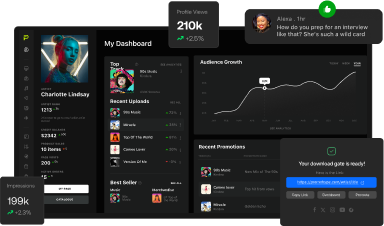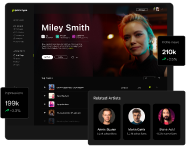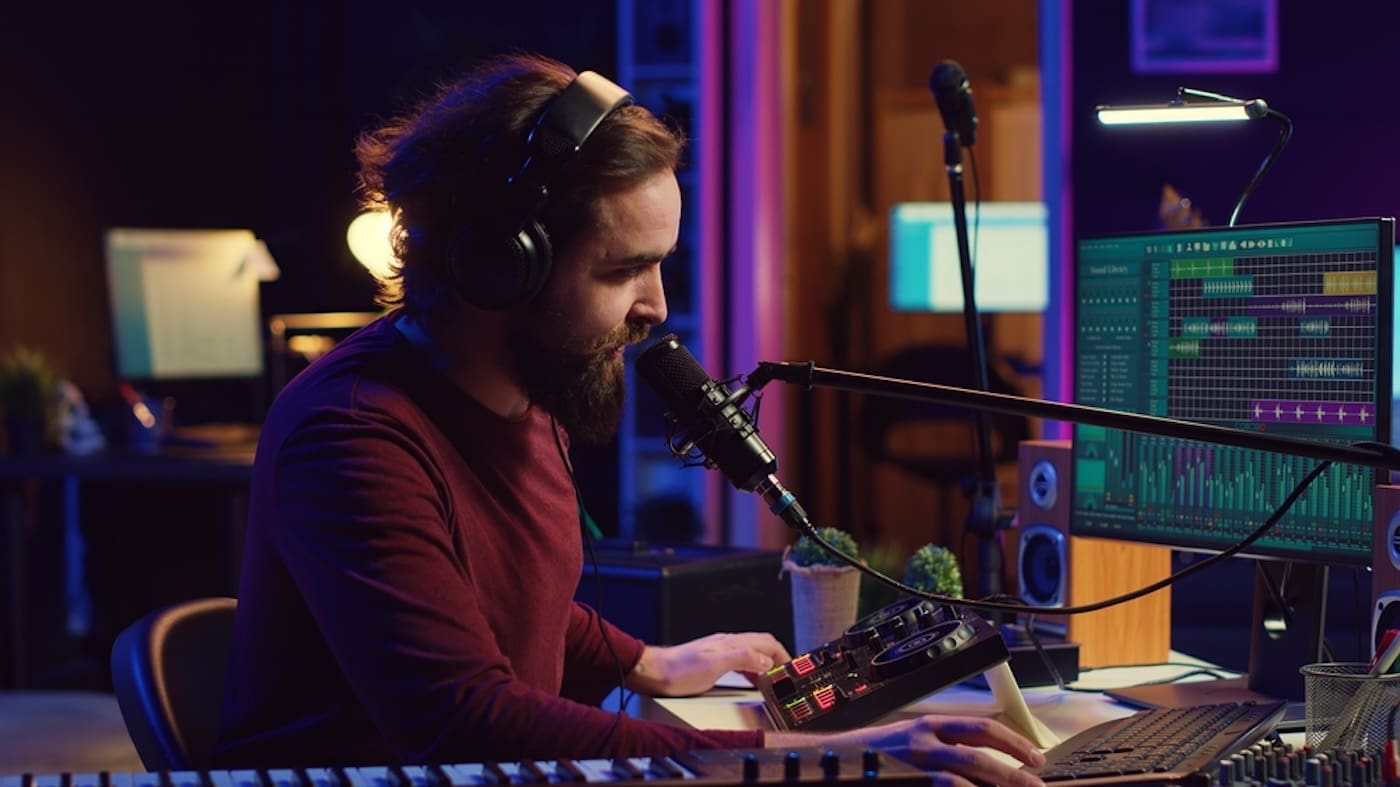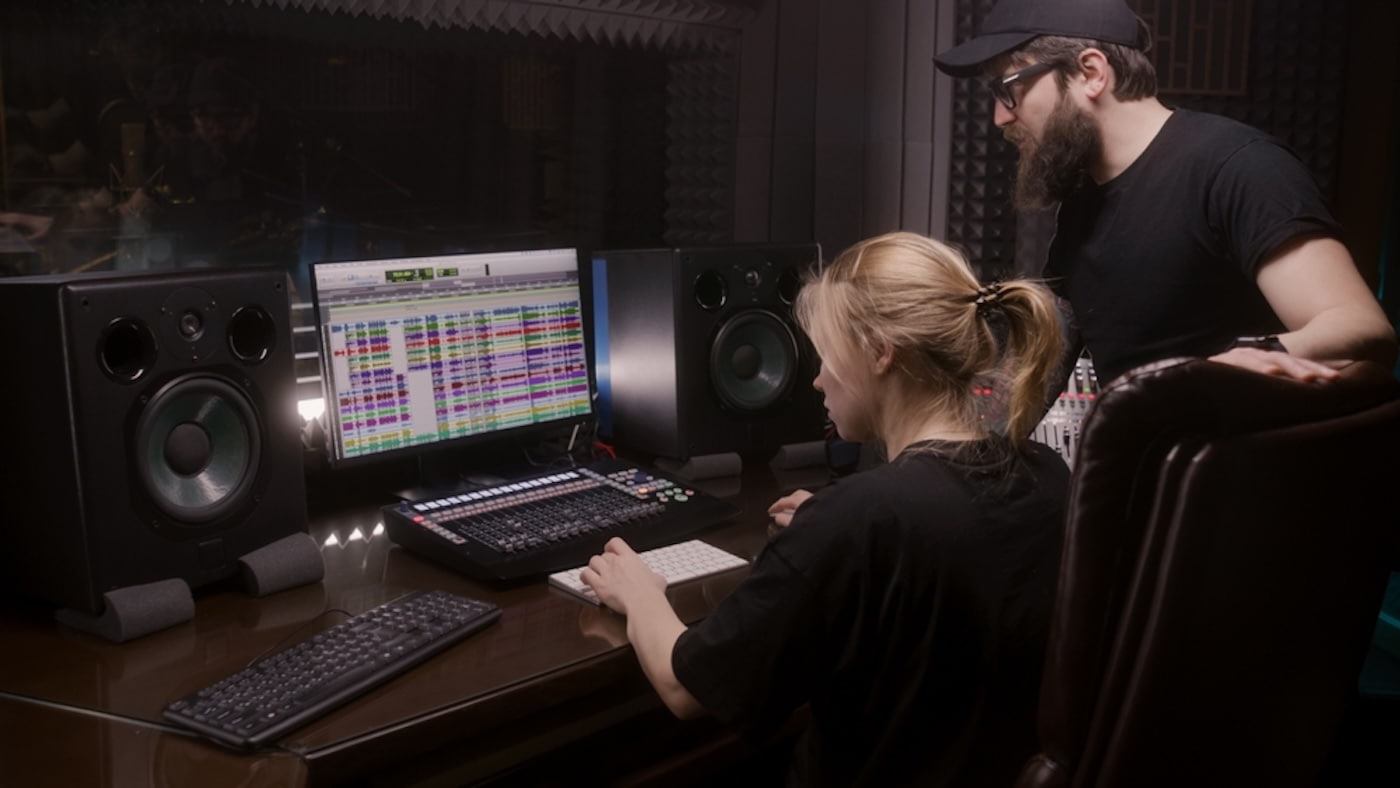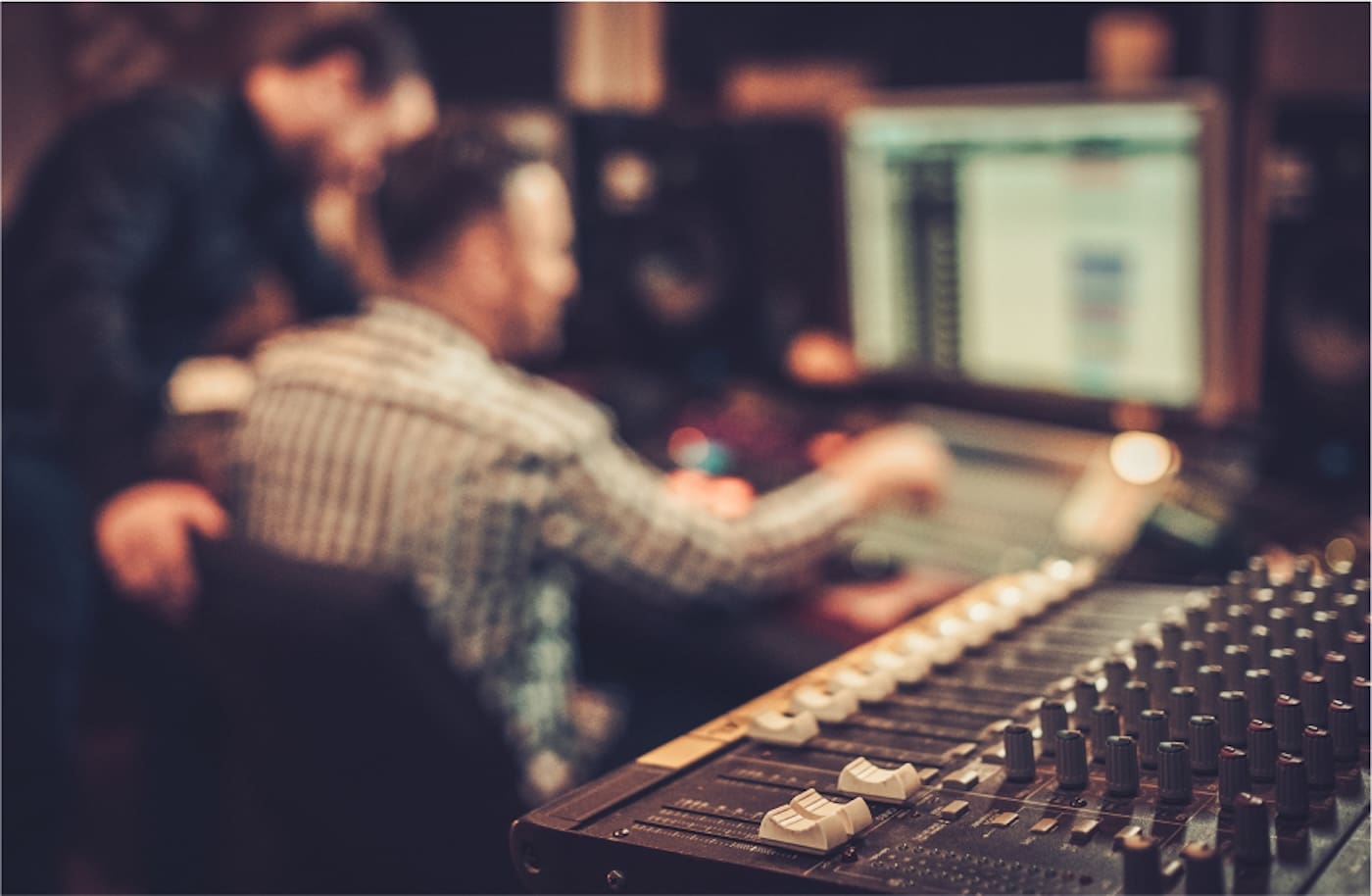
Producing professional-sounding music can be challenging, requiring a seemingly endless selection of equipment and technical skills.
The best music production schools break down the process into clearly defined courses, providing access to expertise and real-world studios.
This guide to the top music production schools in the United States explores topics and resources offered, and how much you can expect to pay.
Get Early Access
To Promo Hype
What Are Music Production Schools?
Music production schools are dedicated institutions that teach students how to make music with professional tools and processes.
Typically classed among other fine arts, it combines creativity and elements of applied science that draw on technical expertise.
Here’s an overview of the core topics most music production schools in the United States offer their students:
- Music production techniques: Dedicated schools cover all aspects of music production using equipment and high-level techniques professionals employ.
- Understanding music theory: Many schools also include courses on music theory that complement production skills by enhancing compositions.
- Applying sound design techniques: Related aspects of music, such as sound design, are frequently augmented alongside general production lessons.
- Navigating the music industry: Some music production courses include resources to help students connect with music industry professionals.
While each school has different facilities, the core approach to learning and access to studio recording facilities generally applies.
Explore Promo Hype’s features.
Advantages Of Music Production Schools
Online courses are excellent for learning music production for free, but schools offer considerable advantages for students.
Here are some of the core benefits of music production schools that make them worth considering:
- Structured approach to learning: Producing music involves many processes, from writing a song to mixing and mastering. Production schools apply a clear structure to learning that unifies these processes.
- Access to resources and tools: Most prospective students cannot afford professional audio equipment and recording studios. Music production schools provide access to high-end hardware and software and expert advice on how to use it.
- Connect with industry professionals: Learning institutions have high-quality industry connections, which can help you get signed by a record label or work in other entertainment sectors.
By researching music schools and courses, you can master recording techniques and audio engineering to produce like a professional.
The 10 Best Music Production Schools In The US In 2025
With hundreds of colleges and universities in the United States, navigating the landscape and finding the best option can be challenging.
Let’s explore the best music production schools in the United States, outlining their location, course costs, curriculum, and everything else they offer:
10. Musicians Institute
Location: Hollywood, Los Angeles, California
Cost: $10,800 per quarter (BA/MA programs)
The Musicians Institute focuses on electronic music production, covering vocal production, track building, and sound design.
Students have access to professional-level music production software, with experienced tutors covering all aspects of production.
Beginning with track building, the course covers the entire music creation process, including beat making and other production techniques.
By the end of the course, a Final Project is wrapped up to demonstrate the student’s mastery of the course’s one-on-one sessions.
9. Frost School of Music
Location: University of Miami, Florida
Cost: $68,600 annual average
Frost School of Music’s Music Engineering program, originally developed in 1977, is marketed as the first of its kind.
It’s a comprehensive program designed to help musicians break into the industry by submitting to radio stations and record labels.
Providing a multi-disciplinary four-year Bachelor of Science, it covers engineering aligned with industry standards.
There’s also an emphasis on traditional instrumentation, with courses to help students master contemporary jazz and classical.
As such, music theory is covered in detail, combined with electrical and computer engineering for modern production quality.
Promo Hype tip: Learn about the different types of chords.
8. Drexel University
Location: Philadelphia, Pennsylvania
Cost: $70,457 annual average
The undergraduate degree program at Drexel University covers various music industry topics, emphasizing business and management.
That said, the course also explains the technology used for production, covering aspects such as MIDI equipment and DAWs.
Majors must select the Recording & Music Production (RAMP) concentration to access the advanced features of the course.
The curriculum walks through the process of using recording studios, mixing, mastering, and arranging music productions.
Additional electives covering film scoring, video game, and electronic music production are also available for students.
7. University of California, Los Angeles (UCLA)
Location: California, Los Angeles
Cost: $6,705 for Certificate Program, plus application and candidacy fees
The music production program hosted at UCLA is oriented around concept, visualization, and arrangement.
These principles are explored through practical and hands-on lessons with the instructor, capturing emotion through methods and tools.
The course breaks down how artistic direction is applied in the studio, from sound design choices to application of technologies.
While students aren’t expected to know how to read sheet music, a background in music theory is certainly advisable.
Once accepted into the course, professional gear and API consoles are used to learn high-level audio engineering techniques.
6. USC Thornton School of Music
Location: Los Angeles, California
Cost: $79,063 annual average
USC Thornton School of Music offers students a Bachelor of Music in Music Production and optional electives.
The curriculum covers a range of subjects, from understanding song structure to studio production and live venue performances.
With an emphasis on electronic music production and associated hardware and software, it covers non-linear editing and sequencing.
This process is augmented by technical courses on acoustics and speaker design, audio mastering, and using a recording console.
In-depth courses on music theory, harmony, and aural skills are also included to help students develop high-level compositional skills.
Get Early Access
To Promo Hype
5. Middle Tennessee State University
Location: Murfreesboro, Tennessee
Cost: $30,786 annual average
The Department of Recording Industry at Middle Tennessee State University blends elements of music production with business and songwriting skills.
On the production side, techniques like audio compression and general engineering help students create highly polished music.
In addition to the audio engineering program, the course expands to cover related entertainment industries, such as television and video games.
Students participate in industry events, such as the Grammy Awards and the Academy of Country Music Awards, for practical experience.
This experience includes partnerships with the university’s College of Media and Entertainment, collaborating on animations and films.
4. Pyramind Music Production School
Location: San Francisco, California
Cost: $18,995 for Core Producer Program tuition
Pyramind Music Production School offers a complete music production program that delivers Avid and Ableton certifications.
It offers customized programs for each student and focuses on electronic music production with hybrid in-person and online lessons.
Covering everything from improving mixes to industry-standard techniques, the course also features professional networking events.
In-depth lessons on synthesis, sound design, and post-production enhance the course’s potential for real-world applications.
Performing musicians and band members can also learn live sound fundamentals, such as front of house and monitor mixing.
3. Carnegie Mellon University
Location: Pittsburgh, Pennsylvania
Cost: $67,020 annual average
Established in 2009, the Carnegie Mellon University music and technology program is hugely popular, resulting in Tony Awards for alumni.
Taking an interdisciplinary approach, it covers recording technology, audio engineering, and music composition and performance.
Students can access cutting-edge equipment and accomplished tutors with specialized knowledge and skills.
Two courses are available: a Bachelor of Science in Music and Technology and a Master of Science in Music and Technology.
2. Full Sail University
Location: Winter Park, Florida
Cost: $86,000 annually
Full Sail University offers a bachelor’s degree in music production, and students are expected to have a basic understanding of music theory.
The course provides access to the necessary hardware and software, and the lessons cover Logic Pro, Ableton Live, and Pro Tools.
Audio engineering, musical arrangement, and game music composition are some course highlights offered to students.
They aim to foster an understanding of production workflows and the limitations of acoustic and electronic instruments in production.
Students work on complete projects encompassing the whole process, analyzing design approaches, and using a production toolbox.
1. Berklee College Of Music
Location: Boston, Massachusetts
Cost: $62,150 annually
One of America’s most prestigious institutions, Berklee College of Music, has worked with many major stars, including Beyoncé’s PR Strategist, Yvette Noel-Schure.
Its music courses help students develop a critical aesthetic vision and understanding of complex technical systems.
Students also engage in collaborative projects, participating as engineers and producers and applying industry-standard criteria.
Multitrack recording, overdubbing, editing, and mixing are all covered, allowing independent artists to create high-quality songs.
Prospective students must submit a written application and complete a five-minute video; the course is highly competitive.
Join like-minded independent artists in the Promo Hype community.
How To Choose The Best Music Production School
Various factors must be considered when choosing a music production program that delivers excellent results.
When comparing music production schools, look for the following information to help you decide which to apply for:
- Course costs and living expenses: Music production schools’ prices vary considerably and can impact your future debt obligations. Likewise, their location can drive up living expenses, particularly in California or New York cities.
- Geographical location: If you’re considering relocating to learn music production, the proximity to your hometown is another critical factor. The area will also affect other aspects like weather, which may impact your decision to enroll in the institution.
- Specialized music genres: Music production schools teach skills applicable to popular music genres and the general recording industry. However, if you’re focused on a niche genre, you’ll want a course that covers this in detail.
- Faculty experience: Most reputable music production schools draw on the extensive expertise of teachers with deep knowledge. You can verify this expertise by researching faculty members’ backgrounds before applying.
If you can’t find this information on their website, send an email with your queries or check out relevant online discussions.
Promote Your Music With Promo Hype
Once you’ve mastered electronic music production, you can learn how to promote your music across various digital platforms.
Promo Hype’s powerful tools help you reach the biggest possible audience and showcase your creative projects where it counts.
By becoming a Promo Hype member, you can access the following features:
- Instant distribution across all major streaming platforms: Promo Hype distributes your music on Spotify, TIDAL, Amazon Music, Apple Music, and more. This setup ensures your creative efforts reach the biggest audience possible for maximum online reach.
- Access to Promo Hype’s powerful Promotional Toolkit: Whether you’re promoting a new release or upcoming tour, Promo Hype’s Promotional Toolkit can help. Use it to manage your marketing initiatives and maximize your budget.
- In-depth analytics to refine your music business: Promo Hype members can access powerful analytics tools through their dashboard. Discover where your songs are getting played and drive future releases where it counts.
- A thriving Community to connect with other artists: If you’re struggling with production or looking for collaborators, Promo Hype members can access a lively community. There, you can build relationships and learn new skills to enhance your production techniques.
Whatever your chosen genre, Promo Hype ensures your music reaches the top platforms like Spotify and Apple Music, helping you connect with new fans.
Summary
While many musicians are self-taught producers, attending the best music production schools provides hands-on experience with access to a professional recording studio.
If you’re considering a formal education, the institutions in this guide offer high-level courses to help you learn music production.
With access to the latest music technology and industry-recognized qualifications, music production schools can help you advance your career.
Get Early Access
To Promo Hype
Join Promo Hype
